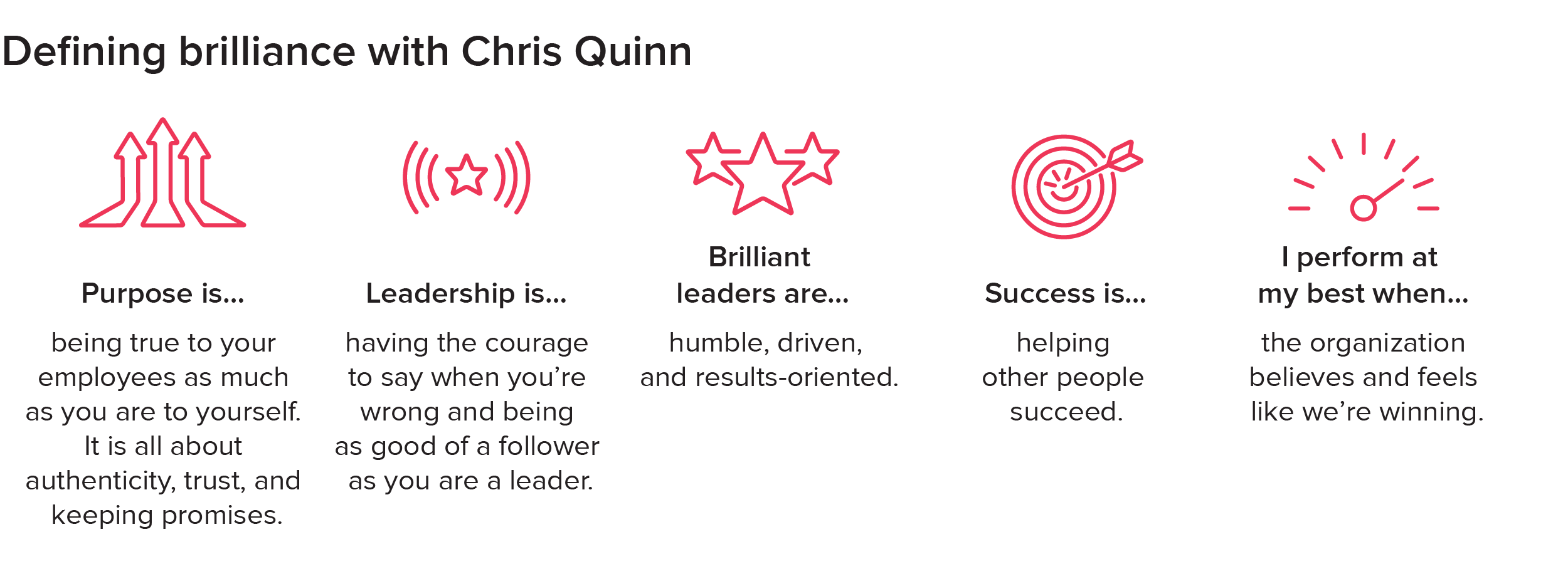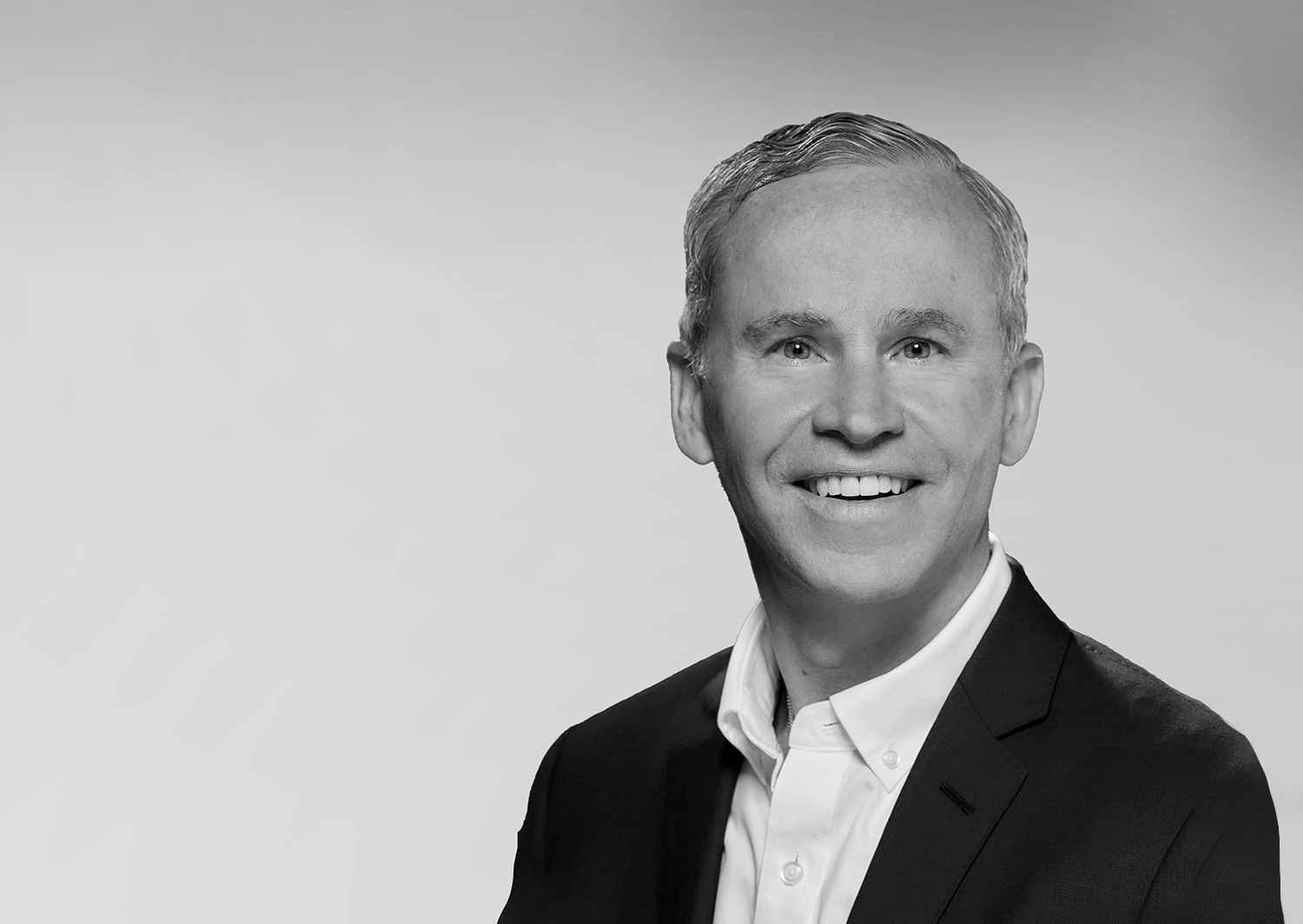Interviewed by Geoffrey Votta
Chris Quinn, CEO of iDesign, is in an enviable spot. When the average American has an estimated four of your company’s products in their household — even if they don’t realize it — it’s fair to say your brand is successful. Chris helped iDesign reach that ubiquitous level and emerge as a dynamic leader in the global housewares and organizational products market in more than 100 countries.
iDesign recently underwent a rebrand; played a big role in the Netflix hit The Home Edit; and launched a vigorous social media campaign that garnered over a million followers. This impressive transformation happened under Chris’ leadership.
As he took on the CEO role in 2017, Chris knew that the company needed to reinvigorate its brand to continue its growth trajectory. He collaborated with his team to craft a strategic plan, set new goals, and focus on metrics. Chris never lost sight of iDesign’s culture and people in the process, which he saw as an essential ingredient to the company’s sustained success.
The team benefits from Chris’ robust experience. He most recently held the top spot at Step2, a private equity-backed toy manufacturer, which he led to record-breaking top- and bottom-line growth. He also spent three decades in executive roles with some of the world’s most trusted brands like Procter & Gamble, The Clorox Company, and New Balance Athletics.
Chris joined Acertitude’s Brilliant People Podcast for a conversation with Partner Geoff Votta, who leads board and C-suite searches for the firm’s consumer practice. Here, Chris reveals the strategies he uses to drive record-breaking growth; the qualities he seeks in high-performing team members; and where he draws inspiration as a leader.
The essential attribute of a top performer
Geoff: Chris, your background includes leadership roles at companies ranging from fast-growing startups to legacy brands. What are some of the lessons that have helped you successfully lead iDesign as CEO?
Chris: One of the biggest lessons I've learned is it all starts and stops with people. Putting people first is critical because they define how successful the company is. Building the right team is important because these are the people who are going to carry out the vision.
But the most important skillset is one that’s tough to spot in an interview: It’s the ability to adapt within companies as they scale.
When you have people who can operate in both growth-focused startups and mature environments, you have people who can get things done regardless of the circumstances around them. Smaller companies require fast-paced decision making and hands-on involvement. You may be setting up a show booth and designing your own PowerPoint presentation one day. Then, the next day, you may be answering to an assertive board of directors seeking an immediate turnaround in a rescue financing situation.
In more established corporate environments, you need to be able to adapt to change and grow your team as you keep innovating.
4 strategic priorities to fuel growth
Geoff: At iDesign, you have focused on four strategic areas. Let’s take a moment and dive into how each of them contributes to the company’s growth.
Chris: Absolutely. The four areas for our company apply to so many other companies:
1. Employee engagement. Gallup has statistically significant evidence that a highly engaged workforce leads to great business results. How do you create that sense of engagement and attraction — a reason for people to want to stay, especially in light of the Great Resignation?
Something that’s working for us at iDesign is the High Five Group. To drive engagement, “High Fivers” act as mentors for new employees, introducing them to different people and showing them the ropes. We make sure we listen to employees, and are honest, authentic, and genuine. Everything starts and stops with the quality of the work that every individual at iDesign does every single day.
2. Consumer engagement. With e-commerce and our global presence, consumers are making purchase decisions almost every single minute. Even when our team is asleep, consumers out there are deciding to purchase iDesign products.
So, we must establish those trusting relationships with each and every consumer. Having them understand what the brand is all about — that it’s not just an organizational bin you put in your refrigerator, but that it is a 100% sustainably sourced, well-designed product. It’s also about making sure that if anyone does have a bad experience, we own it and make it up to them.
3. Product innovation. Our success depends upon how much innovation we bring to the workforce and to the consumer. We're creating what we call “elevated basics.” So, if you think about good, better, best in a purchasing hierarchy, we're aiming for “good plus,” offering solutions that we think are incredibly valuable to the consumer and solving unmet consumer needs.
Based on my large-scale consumer packaged goods background, we work with focus groups and in-house testing to mine consumer insights, then use them to innovate.
Our innovation process is led by a fabulous business unit leader and a team that he has hand-picked and built. We've really challenged that team to develop new ideas. They blow me away. They may be reviewing kitchen-pantry and closet-storage items, but they're also looking at what we can do to innovate in other rooms.
One of the things that I learned at Procter & Gamble was the idea of calculated risk taking. But, calculated risk taking never takes place unless you actually budget for it. So, as part of the innovation process, we build in capital to test products outside of our category as another part of our innovation process.
4. Sustainability. Employees want to be a part of companies that are thoughtful about leaving the planet better than it was when they started. At iDesign, we look at how we live up to that promise to take care of the planet and the communities we serve.
We are committed as a company to being carbon-neutral between now and 2030. And, we think we can actually beat that. Short term, we're working quickly to ensure that all of our plastic products are made from 100% recycled-sourced resin or polyethylene terephthalate—also called PET—which is really important to consumers.
Keeping employees engaged — and why it matters
Geoff: How has the importance of employee engagement changed over the past few years?
Chris: Competition for talent has never been greater. With remote work situations, you can hire the most brilliant person from anywhere, instead of being geographically limited. That means our employee promise has to be significantly better than what other folks offer, not just within our industry, but across industries to help us get the best people.
In addition to the High-Fivers I’ve already mentioned, we've created the Culture of Caring group, a cross-functional team from all different disciplines and levels of the organization, that focuses on initiatives that speak to the hearts of employees. They spend time figuring out what matters to our team members, and how we can get involved in the community. They’ve been behind adding a floating holiday to our schedule and getting involved with community groups like Humble Design. These are things that matter to our team.
We also talk a lot at iDesign about diversity, empathy, and inclusion and why those three principles must exist in our culture. You have to walk the talk when you talk about inclusion. It's welcoming diverse people and making sure that our workforce embraces differences of opinion.
Finding leadership inspiration
Geoff: Where, or from whom, do you draw your inspiration as a leader?
Chris: CEOs should be just like doctors or pilots: Continuous education should be mandatory. In order to continue to fly a plane, you have to continue to get trained. It should be the same for a CEO. We shouldn't have folks in leadership roles who don't raise their IQ on a regular basis. It is important to continue to add value, justify our job, and earn our salary every single day that we work. I do it imperfectly, but I challenge myself to do it on a regular basis.
I personally find inspiration by seeking out and learning from folks who are smarter than I am, particularly disruptive thinkers. Elon Musk comes to mind. I'm also reading a book on Alexander the Great. This is a general who never lost any battles. Now, maybe that's a bit of folklore, but it's interesting to look back at folks who were amazingly successful in history and learn as much as you possibly can from them.

Never miss insights
Stay in the know with our thought leadership



